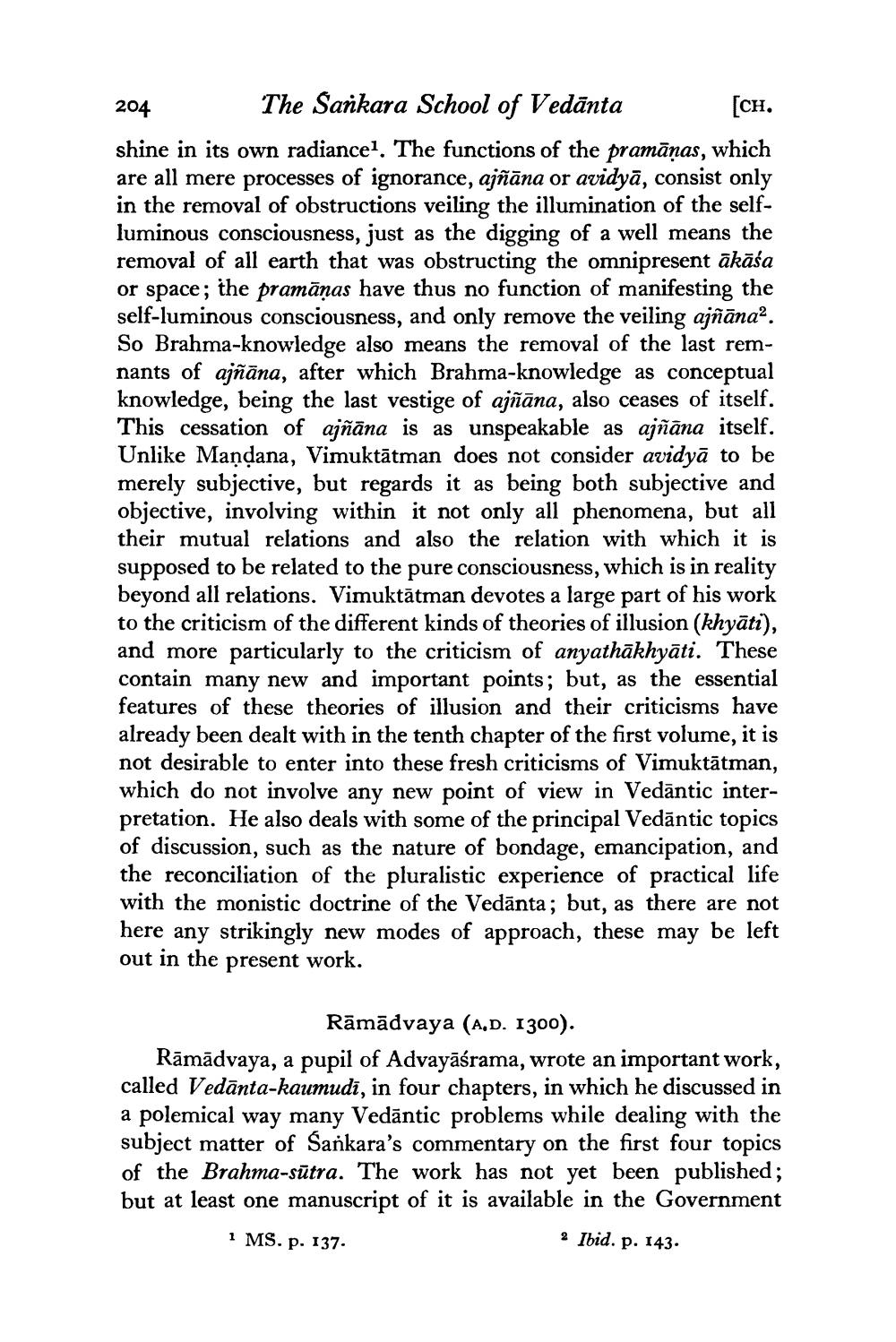________________
204
The Sankara School of Vedānta [CH. shine in its own radiancel. The functions of the pramāņas, which are all mere processes of ignorance, ajñāna or avidyā, consist only in the removal of obstructions veiling the illumination of the selfluminous consciousness, just as the digging of a well means the removal of all earth that was obstructing the omnipresent ākāśa or space; the pramāṇas have thus no function of manifesting the self-luminous consciousness, and only remove the veiling ajñāna”. So Brahma-knowledge also means the removal of the last remnants of ajñāna, after which Brahma-knowledge as conceptual knowledge, being the last vestige of ajñāna, also ceases of itself. This cessation of ajñāna is as unspeakable as ajñāna itself. Unlike Mandana, Vimuktātman does not consider avidyā to be merely subjective, but regards it as being both subjective and objective, involving within it not only all phenomena, but all their mutual relations and also the relation with which it is supposed to be related to the pure consciousness, which is in reality beyond all relations. Vimuktātman devotes a large part of his work to the criticism of the different kinds of theories of illusion (khyāti), and more particularly to the criticism of anyathākhyāti. These contain many new and important points; but, as the essential features of these theories of illusion and their criticisms have already been dealt with in the tenth chapter of the first volume, it is not desirable to enter into these fresh criticisms of Vimuktātman, which do not involve any new point of view in Vedāntic interpretation. He also deals with some of the principal Vedāntic topics of discussion, such as the nature of bondage, emancipation, and the reconciliation of the pluralistic experience of practical life with the monistic doctrine of the Vedānta; but, as there are not here any strikingly new modes of approach, these may be left out in the present work.
Rāmādvaya (A.D. 1300). Rāmādvaya, a pupil of Advayāśrama, wrote an important work, called Vedānta-kaumudi, in four chapters, in which he discussed in a polemical way many Vedāntic problems while dealing with the subject matter of Sankara's commentary on the first four topics of the Brahma-sūtra. The work has not yet been published; but at least one manuscript of it is available in the Government
1 MS. p. 137
2 Ibid. p. 143.




